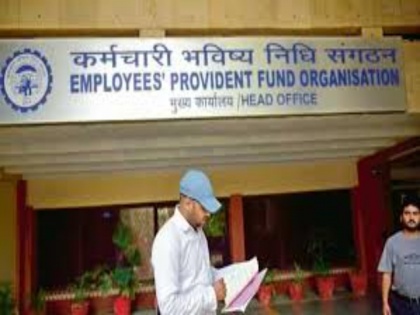Centre's wage subsidy via EPFO scheme likely to create more than one million jobs
By Lokmat English Desk | Published: November 17, 2020 10:36 AM2020-11-17T10:36:06+5:302020-11-17T10:41:41+5:30
The Centre on Thursday announced to give wage subsidy via the employees provident fund organization (EPFO) that will spur ...

Centre's wage subsidy via EPFO scheme likely to create more than one million jobs
The Centre on Thursday announced to give wage subsidy via the employees provident fund organization (EPFO) that will spur creation of more than one million jobs over the next two years. The scheme is likely to cost the Centre ₹6,000 crore. As per a government official, the initiative aims to create jobs at the lower rung of the salary threshold.
The scheme, known as Atmanirbhar Bharat Rozgar Yojana, will benefit workers with wages up to Rs 15,000 who have been employed for the first time by an establishment covered by the Employees’ Provident Fund Organisation.
Central government will give subsidy for two years for new employment from October 2020-June 2021, as well as for workers who lost jobs between 1 March and 30 September, but are now joining back, said Finance Minister Nirmala Sitharaman last week.
Emplyoyers will have to add at least two new employees if they have total workforce of less than 50 and employers will have to hire a minimum of five new employees if their workforce if more than 50. The scheme will be in effect from 1 October 2020 and 30 June 2021, meaning new employment has to take place between this period, said FM Sitharaman last week.
Establishments covered under the EPFO that have up to 1,000 workers will get 24% EPF subsidy, 12% of the employers’ share and 12% of the employees’ share. If the company has more than 1,000 employees, the government will reimburse the 12% share of the new employees added.
The experts have lauded the initiative and said it is incentivising low-wage, low-productive work. "The outcome of these jobs will have limited multiplier effects and may not influence the demand in the market," said K.R. Shyam Sundar, a labour economist.
Open in app